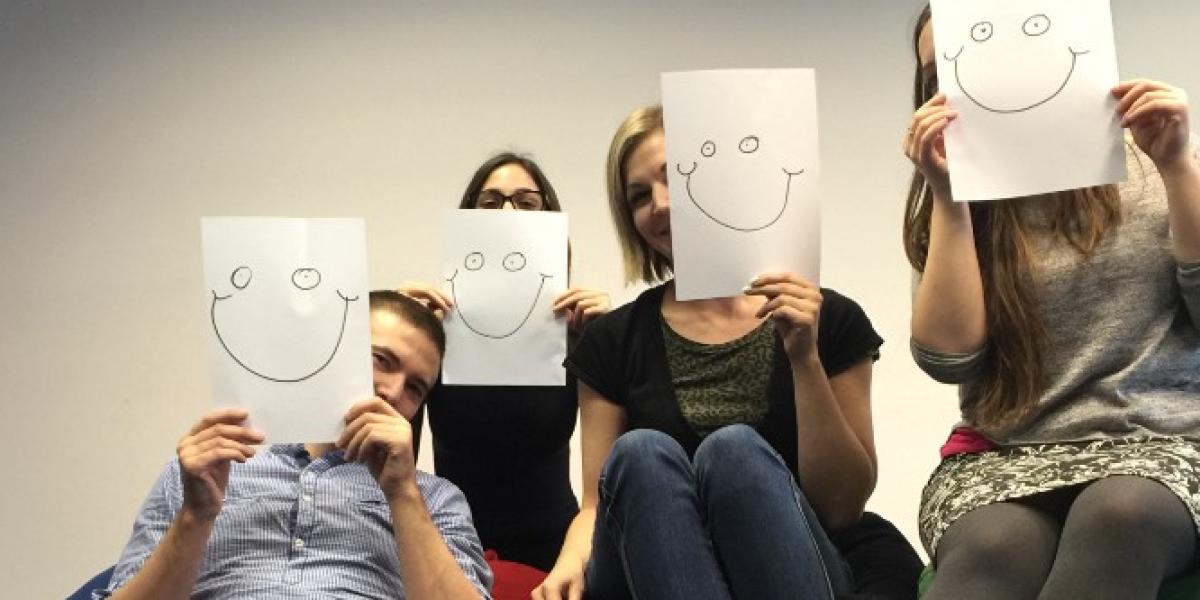This tool is known and recognised by organisational developers as 360-degree feedback. They recommend it with keywords such as awareness, credibility, change, effectiveness. Sounds good, right?
Integral Vision
At Integral Vision, they have been using 360 for feedback for years. What does it mean in practice? The expectation was for me (and everyone) to own up to my opinions and be open to criticism from others. I was in a unique position because I had to do all this with people I had known for only two months. This made me nervous about writing dozens of reviews waiting for others' feedback on my operation.
The tool known and respected by organizational developers is 360-degree feedback. They recommend it with keywords like awareness, credibility, change, effectiveness. Sounds good, right? In theory, very. At Integral Vision, we have been using 360 for feedback for years. What does it mean in practice? The expectation was for me (and everyone) to own up to my opinions and be open to criticism from others. I was in a unique position because I had to do all this with people I had known for only two months. This made me nervous about writing dozens of reviews and waiting for others' feedback on my operation.
Filling it out was very easy; I just logged on to the website, entered my code, and was ready to write. I had to answer two questions about each of my colleagues. In one, I wrote down why it was good to work with them this year, and in the other, what I thought they should change. When I clicked on the name of my first colleague in the list and the little sign flashed up in front of me to write, I realized what a big responsibility it was. It makes a difference what I write how I word it. The reviews are aggregated and displayed anonymously for the reviewer on our site. You won't know that I wrote it, but the responsibility is still huge because it is based on this feedback that we make our own experiences of the past year, change or not change our behavior. I've even started to get more anxious about how they will write to me and see me.

What could unlock this initial difficulty in me? It helped that I didn't have to write anything I hadn't said before. The 360 is just a summary of what has already been noted in the fortnightly "retros." Every second Wednesday, we set aside a particular time to discuss the tensions and problems accumulated and find solutions. There is no expectation always of being correct, always liking everything, or always agreeing. We can be tired or nervous. So, we're human. :) We even made a robot to acknowledge each other's work; Ingrid collects positive karma when someone has helped us, and we want to thank them.
It was hard to. Get a good grip and articulate with all of this. The feedback must be both supportive and honest. And to do that, you have to pay attention, not only to the work that the other person is putting out but also to the process and the communication. And also partly consciously about myself, how I felt when we worked together on a task. Writing honest feedback is not two minutes. I can't say, sure, everything was okay and move on. For me, answering those two questions took more than half an hour for most of my colleagues. Later, I went back over them, swapping words, adding new thoughts, deleting, formatting. The hardest thing was to formulate the suggestions for change without offense. But I invested in the work because I felt my opinion mattered.
The hardest part was to make the changes without being offended.
Then the day arrived when everyone received a printed list of positives and suggested changes. It was a great experience; I received a lot of supportive kindness and felt included in the team. I also received insightful and thoughtful suggestions on what I could change. After reading the evaluations, there was an opportunity to ask questions of others or share my feelings, which the team took advantage of. Some thanked the evaluations; others said they were not surprised by the changes suggested by others. One colleague was disappointed not by the content of the assessment but by their number. Others found the lack of suggestions for changes difficult. Being honest is risky and sometimes painful, but otherwise, there is no real connection or progress. I felt very honored to be included by my colleagues in what was happening inside them.
I think it's important to note that 360 is not unique to us but is a tool that is firmly embedded in our organizational culture. It and everything else we use at Integral Vision for feedback, task allocation, leading meetings are all good for building trust between us, even with all the risks. I believe that others accept and value what I do, I contribute to its success, but at the same time, I do not face the difficulties alone. That we can make mistakes, but we learn from them together. It's hard to put into words what a different world it is compared to trying to comply with rules, customers, or finding fault, blame when something doesn't work. One element of this safety net is 360, a tool that, when used responsibly, strengthens the team. But it also shows that it takes everyone's input to make the network and keep it tight, and I have to make an effort to keep it close.
Share with your friends!